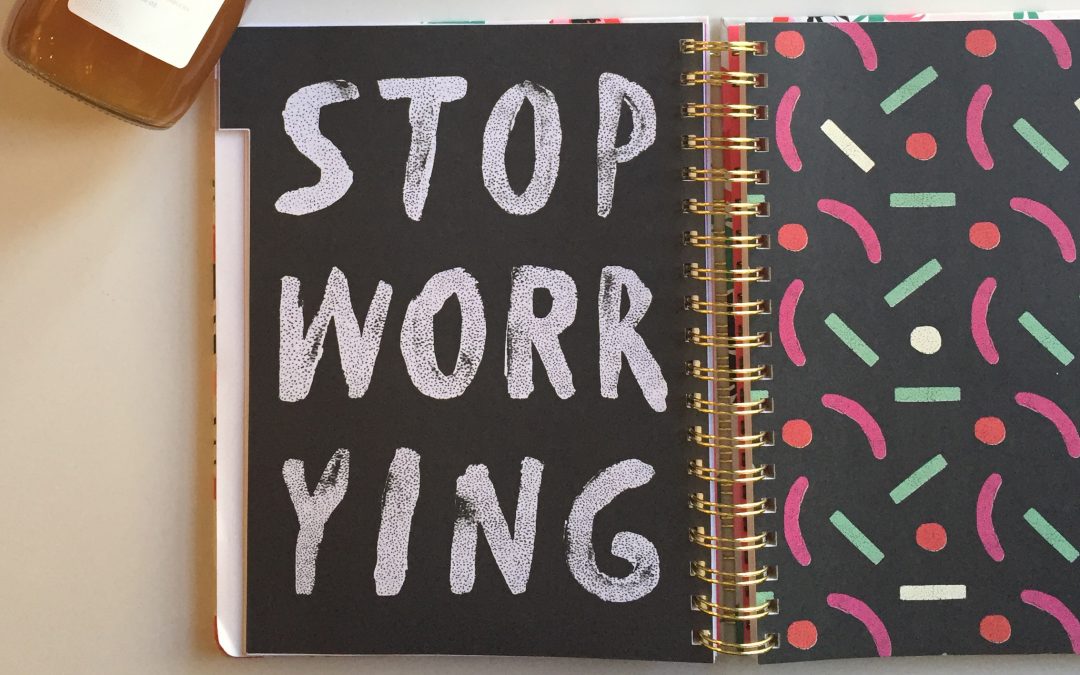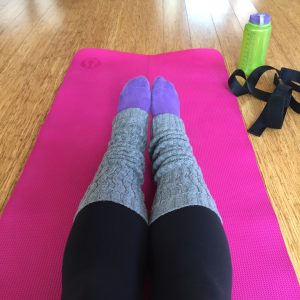
by Rachel Dukeman | Jul 11, 2017 | Action Planning, Design, Entrepreneur, Mindfulness
Your work space is important. It can dictate your productivity and vastly improve your mood. After dozens of projects with dozens of clients and three years in the same office, I’ve decided to actualize my daydreams and seek out the perfect office space.
I have been craving a comfortable, usable space that would inspire my creativity and embody my passions. I wanted a space to myself that is specifically designed for getting work done efficiently. I needed a space that was conducive to my entrepreneurial lifestyle. For me, that meant a window, a big desk, a “zen den,” and a small space for lunch meetings and quick brain breaks.
After searching for weeks, I have finally found the dream spot. I am relocating to Southwest Center City next week!
As you may know, I am passionate about balance and mindfulness. In packing up my old office and preparing my new one, I have discovered a few interesting lessons about usability and work habits that I hope will inspire you to think about your work space.
1. Clutter is NOT the answer

Clutter is always the paper note-taker’s biggest problem.
I am a big note taker, and I often lead strategic brainstorm sessions, board retreats, and focus groups. My notes provide me with every tool I need to propose smart solutions to strategic problems, but they also leave behind a war path of clutter.
Do you know these giant Post-Its? I usually bring two pads with me to each of those meetings. And as I started packing up my space, I realized that my office was hiding tons of old Post-Its, notes, journals, and legal pads full of ideas I had executed long ago.
When you finish with a scrap of paper, recycle the paper. You’ve already executed your best idea from that page of notes, so it is highly unlikely that you will use any leftover ideas. However, it is very likely that you will feel light and unencumbered when you walk into your open, de-cluttered office each morning.
2. Natural light can go a long way for fostering creativity

Imagine how creative you could be if you worked next to a floor-to-ceiling window every day…
My old office had a small window that was always a highlighted feature for me. I had all of my meetings next to the window, ate lunch near the window, and even decorated the window sill with plants to add extra green to the space.
When searching for a new space, I recognized that I was craving the natural light that a bigger window would provide. Just as going for a walk can help us relax our minds, natural light helps me clear my head and consider new perspectives on strategic problems. For me, natural light has been crucial to setting myself up to get into my most creative mindset.
3. The newest necessity for anyone working on cross-country teams: no-assembly-required professional backdrops for video calls

Sometimes all it takes is a clean workspace behind you, other times you need to get a little more creative.
I pride myself on my professionalism, but I also like to work in the heart of Philadelphia. I may not be able to control the sounds of the city that sometimes sneak their way onto my calls, but I can control the backdrop during a video conference. Considering this fine detail when upgrading your office space is an easy way to take your professionalism game up a notch.
When choosing a backdrop, be resourceful and intentional. Find something visually appealing but not distracting. Sometimes all you need is a clear floor space. For those of you decorating a wall, don’t underestimate the power of an old tapestry!
4. Recognizing your rhythms – zen dens, couches, and a whole lot of whiteboards

Namastay in the office …and still get a mindfulness break!
Everyone has a work rhythm, and paying attention to yours could be the trick for enabling yourself to access your best work.
For me, I am an early bird and a night owl. But that 3pm timeframe kills me. So for early mornings and late nights, I need a large desk with space to spread out and a few whiteboards for hammering out the details for my big ideas. Then for that one-hour block in the afternoon, I need my work space to include a place for short brain breaks: maybe a little space for yoga, a “zen den” for meditation, or a couch for recharging.
Figure out what you need, and build it up around you. Ultimately, your office space should should fit your work needs. In essence, it should set you up to become your most productive, most creative self.
I hope you’ll come visit my new space at 2216 South Street!

by Rachel Waxman | Apr 28, 2017 | Action Planning, Entrepreneur, Mindfulness, Strategy
A while ago a friend of mine said to me, “I’ve had a mentor for everything I’ve done in my life… So why would pregnancy be any different?” Now, months later, my friend has a baby…. And I can see that she was exactly right.
This is hardly a novel concept, there are plenty of articles about the importance of mentorship for advancing your career. What I’m learning is that mentors can be helpful for more than just career decisions. You could have a mentor to help when buying your first house, a mentor for leading better presentations, or a mentor to consult about a serious relationship. Here are some of the many ways mentors could be huge value adds in your life…
1. You Don’t Need to Reinvent the Wheel
Chances are someone has already successfully done the thing you’re trying to do. And those are the people you should consider when looking for a mentor. Go out, find them, and ask how they did it. If you take advice from those you admire and then attempt to follow in their footsteps, you’ll likely achieve the same successes.
2. Build Valuable Skill Sets Today
…Even if you won’t need it until later. Recently, I’ve been asking mentors for specific advice on specific things and I’ve found it really rewarding. In fact, I keep imagining what a strong professional I’ll be in five years if I keep practicing these skills now. And that includes the skills that aren’t directly related to my current job role!
3. Serious Validation
A mentor can validate your work in ways that your friends and your family cannot. They’ll be honest when you’re doing well, and they’ll be honest when you need to improve. Great mentors may even lead you on the path to improvement and show you specifically how to get there.
Finding a Mentor
Now that you’re sold on how a mentor could provide value in your professional and personal life, let’s talk about finding one.
First, find people who inspire you. Use whatever tools you’ve got! Subscribe to blog posts, podcasts, LinkedIn posts and Instagram feeds of people whose work you admire. I’m a big reader, so I queue up influential books I hope to read on the Good Reads app.
Next, see if anyone you know can make an introduction between you and one of these people you admire. Most likely, this method will get you a response.
However, if you can’t get an intro, send an email or LinkedIn message out of the blue. A genuine message about something specific is hard to ignore. Something like, “I am so impressed with how gracefully you spoke on that panel last week. Your words about failure really resonated with me, and have since inspired me to think more carefully about how to get my own business off the ground. I’d love to pick your brain and hear more of your story. Do you have any time to grab coffee next week?”
Lastly, always make the coffee/lunch ask! Worst case scenario: they don’t respond. Best case scenario: they’re flattered and excited to meet you. (Please note: being ignored really is the worst case scenario. No sane human would ever respond negatively to a kind message that compliments their work.) It doesn’t always work, but you have nothing to lose by trying!
by Rachel Waxman | Apr 7, 2017 | Action Planning, Entrepreneur, Nonprofit Management
If you’ve set goals and you’re serious about meeting them, then you’re inevitably going to have to give up other tasks in order to achieve your goals. If you’re spending your time on little tasks that aren’t integral to moving toward your overall goals, then you need to get comfortable with asking for help ASAP.
Let’s say you you are a marketing professional. Then you should not be reconciling your company’s financials. Sure, you could do the books. But if there are a finite number of hours in a week and you bring in the most money by doing marketing work for your company, then you should be spending all your time on the marketing work and asking (or paying) someone else to do the books.
I must admit, though, I am horrible asking for help. I usually get caught up in one of three Delegation Fears.
1. I don’t want to waste time explaining how I want a project done.
I try to remember something I once heard in a web design class, “Everyone has a scholarship to Google University.” And it’s true! If you delegate a task, the person you sent it to should be able to figure out how to accomplish the task, even without you holding their hand and leading the way.
2. I could do it better myself.
In situations like this, I’m reminded of another piece of advice I first heard from one of Hilary Rushford’s webinars, “Perfect is the enemy of good enough.” If you like things done a certain way, I urge you to challenge your instincts. Seeking perfection is unrealistic and will set you up for failure. Instead, recognize when your work is good enough. Get it done, and move on.
3. Oh, it’ll only take me five minutes.
But imagine how many of those five minute tasks you pile on each week. Tally up those five minutes each month, and consider how much time you’ve lost in an entire year. Identify your strengths and what you bring to the table that offers the largest ROI. Delegate any tasks that aren’t within your strengths or are wasting company time.
Of course, you should work hard. But you also need to work smart. Your time is finite, so if you’ve got a lot on your plate, make sure you’re doing those tasks that will get you the most bang for your buck. Those of us who work for startups, small businesses, or nonprofits, are constantly juggling multiple tasks and projects. But when it comes to achieving the goals you’ve set for yourself and your business, you need to make sure you’re spending your (limited) time doing what is most impactful for your organization.

by Rachel Waxman | Dec 26, 2016 | Action Planning, Strategy
…Or when you’re out for a walk, or in a spin class, or just chatting about your day with a friend? Because you’re relaxed, doing something pleasant, and focused elsewhere. Calming down enough to let your mind wander aimlessly will often lead you to that Aha! Moment you’ve been needing. This phenomenon has even been studied by scientists, who conducted experiments to prove that taking a walk outside will boost your creative idea flow.
But we can’t always get the space to go for a walk in the middle of the workday. And it’s probably unrealistic to plan to shower in your office whenever you get a creative block. I’ve previously suggested intentionally planning your days to allow downtime, while some businessmen at HBR suggest using basic mindfulness practices to allow your brain the space to have Aha! Moments.
Here are some tips you can fold into your normal workday to help open yourself to more creative ideas:
- Relax. Take some quiet time to yourself, away from the people you otherwise have to work, meet, or speak with. Just breath and be alone with your thoughts. Instead of zoning out on your phone, be intentional about leaving behind the technology and other things that could otherwise be distracting. Sometimes I’ll bring a piece of paper and write down all my thoughts.
- Do something that makes you feel good. Maybe it’s going for a walk, chatting with a friend, or listening to an inspirational podcast (I really like TED Radio Hour by NPR). Whatever works for you, go do it. Give yourself a positive energy boost and take a real break from the task you’re working on.
- Focus elsewhere. Work out, watch mindless TV, or play a solo game like Bejeweled. When you’re focused on something that only requires minimal cognitive capacity, you’re still able to let your mind wander enough to make it susceptible to an Aha! Moment.
- Take a nap. You’ve heard the advice to “sleep on it,” but that’s actually based in reality. When you wake up calm, relaxed, and rejuvenated you’ll have the mental clarity to re-evaluate the task at hand.
Not only are these tips great for inspiring creative ideas, but they’re also helpful when you’re trying to make a big decision. Whatever you’re working on or thinking about, the important thing is to relax, give yourself some mental space and a touch of positivity and you’re sure to make the best move forward.
by Rachel Waxman | Oct 29, 2016 | Action Planning
I swear by the daily paper planner. I like having a tangible list and I like having a neat, organized, pretty little piece of paper. I love the feeling of crossing things off and throwing out the paper at the end of the day. I first got hooked when I discovered this template from Etsy. And I made it my own by creating sparkly glitter flower covers that I got laminated and took the whole thing over the Kinkos to get bound. SO worth it, by the way, because those stupid sparkles made me do a little happy dance every time I looked at them (not to mention, they serve as a GREAT conversation starter right before a meeting).
You should find what works for you. Do you like adorable fluffy pets? Do you like fashion magazines? Do you love everything at Anthropologie? Whatever it is that can bring just a tiny bit of happiness to your day, stick it right on the cover of your planner (or on your computer background, or tape a pic of it to your desk…)
Each Monday I get into work and spend 15 minutes to make a list of projects that I aim to complete that week. Then I spend another 15 minutes writing the day’s meetings into my daily planner, and scheduling tasks for appropriate chunks of time based on my availability outside of meetings. I find it helpful to doodle quick tasks along the side, so I can still be productive when I have a quick 10 minutes to spare.
The biggest challenge in this game is avoiding distractions when you set aside time for specific tasks. When working from home I put my phone away and make sure it’s set not to make sounds or vibrate, sometimes I’ll also put my computer on “Do not disturb” so the iMessages don’t come through. Log off of Gchat, close all social media tabs (or any non-relevant browser tabs). You’ll likely be surprised at how focused you can be when you eliminate distraction! It’s a bit more challenging in the workplace, where people are your biggest distraction. If you have the possibility of using a private space, take advantage of that. Or ask coworkers not to disturb you when you’ve got headphones in. Just be honest: when you need to be working, tell those around you that you can’t speak to them until you’re finished. (Pro tip: I also found these playlists made specifically for productivity, which I swear works)
Each day I start off with a new daily list, taking 10 minutes to get settled at work and be intentional about my plan for the day. The more I plan in advance, the more I can be proactive, not reactive, in the workplace. And that’s the main goal, right? Be proactive.







